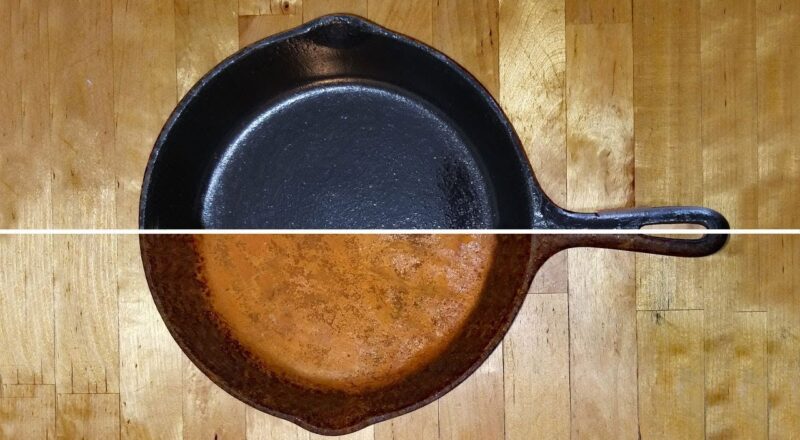Seasoning a cast iron skillet is more than just a cooking requirement; its a technique steeped in tradition and verified by modern science. Understanding why you season cast iron enriches your cooking experience. Whether you’re an experienced chef or a home cook, you’ll find that a well-seasoned cast iron skillet is invaluable.
Seasoning cast iron creates a natural, non-stick layer on the cookware. This is essential, especially for health-conscious individuals seeking to cook with less oil. By bonding oil to the iron at a molecular level, the process forms a durable coating (seasoning) that not only prevents rust but also improves the skillet over time.

The Tremendous Historical Relevance of Seasoning Cast Iron
Cast iron cookware has been around for centuries, spanning various cultures and cooking methods. Seasoning was a common practice long before the existence of non-stick coatings. Our ancestors knew the value of a well-seasoned pan: it was a matter of necessity.
The Chemistry Behind Seasoning
Understanding the chemistry helps you see why you season cast iron. Seasoning occurs when you heat fats or oils to high temperatures. The fats transform via a process called polymerization, binding to the metal and forming a slick layer. This layer is what gives the cast iron its famous non-stick properties.
Modern Solutions and Technological Approvals
Today, technology further validates why seasoning is essential. Infrared thermometers, precision heating, and even synthetic oils ensure more consistent and layered seasoning. These advancements mean that anyone can achieve a perfect seasoning with guidance.

The Health Benefits Of Seasoning Cast Iron
A well-seasoned cast iron skillet contributes positively to health-conscious cooking. It allows you to cook with less oil and adds a small amount of dietary iron to your meals. For those looking to reduce their chemical intake from non-stick pans, cast iron offers a natural and safe alternative.
An Approved Method for Cooking
Seasoning acts as a natural non-stick surface without the need for harmful chemicals. The approval of this method by modern technology ensures a healthier lifestyle.
Cuts Down on Cooking Oil
Using less oil in cooking is beneficial for your health. The more layers of seasoning on the skillet, the less oil you need to cook your food.

How To Properly Season Your Cast Iron
Ready to start? Here are steps to effectively season your cast iron skillet at home.
- Clean the skillet thoroughly using hot water and a mild detergent.
- Dry it completely.
- Apply a thin layer of oil ( flaxseed oil is recommended).
- Heat the skillet in an oven at 450F for about an hour.
- Let it cool in the oven.
Maintaining The Seasoning Layer
Regularly maintaining your skillet ensures its longevity and continued performance.
Cleaning Your Skillet
Always avoid abrasive cleaning materials. Use mild soap, and after washing, reapply a thin layer of oil.

Common Mistakes To Avoid
Heres how to avoid common mistakes people often make while seasoning their cast iron.
Over-Oiling
A common error is using too much oil, which results in a sticky surface rather than a smooth, non-stick coating. Apply oil in thin layers.
Not Heating Enough
Ensure that you heat the skillet to the required temperature. Insufficient heat means incomplete polymerization, leading to a weak seasoning layer.
FAQ: Answering Your Questions About Seasoning Cast Iron
How Often Should You Season A Cast Iron Skillet?
New skillets should be seasoned every time after use for the first few months. After a solid seasoning has been built, you can season it once every few months or as needed.
Is Flaxseed Oil The Best For Seasoning?
Flaxseed oil is highly recommended due to its high smoke point and ability to create a hard, durable layer. However, other oils like canola or vegetable oil also work well.
Can You Use Soap On A Cast Iron Skillet?
Yes, its a myth that soap removes the seasoning. Mild soap will not harm the seasoning, especially if its well-established. Avoid harsh detergents and scrubbing pads.
Conclusion
Understanding why you season cast iron helps you appreciate this traditional method, enhanced by modern technological approvels. The benefits are tremendous, improving both your cooking and overall health.
For a deeper dive on cleaning methods and recipes, visit clean cast iron , pot roast and clean your Dutch oven.
As an Amazon Associate, I earn from qualifying purchases.

